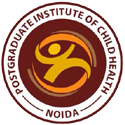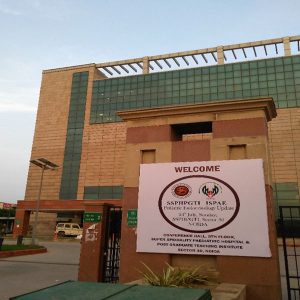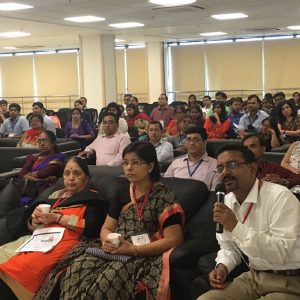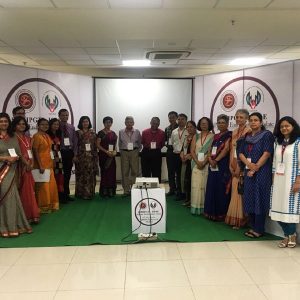Introduction
The Department of Paediatrics at PGICH was started in December 2015 to strengthen the basic pillars of child health like growth, development and nutrition and do constant monitoring for detection of deviations at earliest stage when corrective measures can be instituted to ensure optimal outcomes. The scope of Paediatric Medicine services extend from specialized clinical services to overall wellbeing of children and adolescents up to 19 years of age. At present, the department provides outpatient consultation services& indoor facility for a wide variety of childhood disorders. In addition, we also provide round the clock emergency facility for very sick children presenting to our institute. We aspire to provide each child with an opportunity to grow, develop and enjoy the essence of childhood at fullest for his/her potential and not only the freedom from diseases.
Name of the Faculty
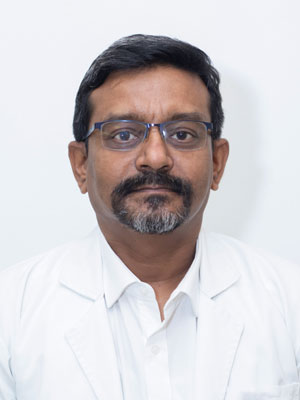
Dr. Dharmendra K Singh
Designation: Professor & Head of Department
Qualifications: MD (Paediatrics)
Areas of interest: Paediatric Hematoncology, HIV-AIDS and Infectious diseases
OPD Days and Hours: Monday/Thursday (9am – 1pm)
Contact (Email & address): 0120-2451122, cms@ssphpgti.ac.in
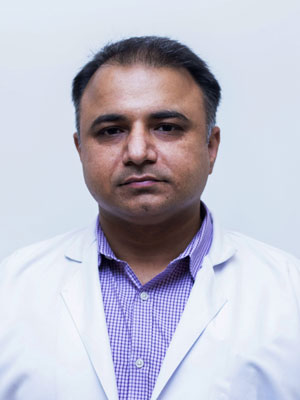
Dr. Bhanu K Bhakhri
Designation: Additional Professor
Qualifications: MD (Paediatrics), PDCC (Paediatric Endocrinology)
Areas of interest: Paediatric endocrinology & diabetes, public health and research methodology
OPD Days and Hours: Tuesday/Friday (9am-1pm)
Contact: Ph- 0120-2458000, Email- bhakhri.bk@ssphpgti.ac.in
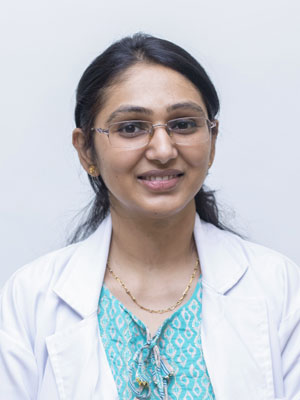
Dr. Vernika Tyagi
Designation: Assistant Professor
Qualifications: M.D (Paediatrics)
Areas of interest: Pulmonology and critical care
OPD Days and Hours: Wednesday/Saturday (9am-1pm)
Contact: Ph- 0120-2458000
Patient Services
OPD Services
General OPD: to take care of children presenting with a wide variety of diseases, and to provide wholesome care to all children, including assessment of growth, development, nutritional status and immunization. (9am to 1pm)
Special OPD:
- Paediatric Diabetes clinic & immunization/ well baby clinic – Monday
- Paediatric nephrology & diarrhoea clinic – Tuesday
- Paediatric Endocrinology & haematology Clinic – Wednesday
- High risk newborn clinic & Paediatric neurology – Thursday
- Paediatric Asthma & immunization/well baby clinic – Friday
Emergency Services:
24 X 7 emergency services for very sick children, mechanical ventilation/ high flow oxygen therapy for children with respiratory failure.
In patient services
General wards as well as private ward facility, isolation wards available.
Cashless scheme available
Ayushman Bharat Scheme: Documents required – Ayushmann bharat card/ aadhar card/ ration card
Service charges
- Bed charges: Rs 250/ day
- Admission charges: Rs 100
- OPD card charges: Rs 100 for 6 months
- Medicine and investigations charges extra
Academic Activities
Academic activities organised by Department of Paediatric Medicine
- SSPHISPAE Pediatric Endocrinology Update, 27th July, 2016
- Childhood diabetes- interactive meeting 5th April, 2017
- Childhood diabetes- interactive meeting 18th April 2018
- Pediatric Endocrine Update, 18th December, 2018
- SSPHPGTI-IAP update on child abuse, 5th February, 2019
- SSPHPGTI-IAP module on child behaviour 5th November, 2019
Conference/Workshops/CMEs and other academic activities attended as faculty
DR. D K SINGH, Professor and Head of Department of Paediatrics
- Faculty in VACCION 2021 Prayaraj
- Faculty in Pediatric Covid CME in GIMS Gr. Noida.
- Faculty in UP Neocon and Central Zone Neocon 2021.
- Faculty in AMACON 2018
- Faculty in CME Cum workshop in Neonatology 2018.
- Faculty in MINIPED CON-2018, 2018
- Faculty in UK PEDICON 2017
- Faculty in UP Pedia Respira 2019
- Faculty in central zone Pedicon 2019
- Faculty in IMA-CGP 2019
- Faculty in AMACON 2019
- Participated as faculty/chairperson in various CMEs/ Conferences organised in SSPHPGTI, Noida.
Dr BHANU K BHAKHRI, Associate Professor
- Speaker, chairperson- ISPAE biennial meeting, Coimbotore- June 2017
- Speaker- Pediatric Endocrine update, Apollo Hospital, Delhi- March 2018
- Faculty- Pediatric Endocrine update for residents- LHMC New Delhi- December 2018
- Participating investigator- AIIMS- ICMR young Diabetes registry- December 2018
- Editorial board member and contributor of European (ESPE)- ICPE web based knowledge building platform for RLC countries
- Scientific committee member at ISPAD 2018, international meeting at Hyderabad
- Session chair at ISPAD 2018, international meeting at Hyderabad
- Poster walk judge ISPAD 2018, international meeting at Hyderabad
- Speaker at PPEC workshop at AIIMS Bhopal, November 2018
- Speaker at PPEC workshop at MAMC New Delhi, August 2018
- Participated at ISPAD science school for physicians in Italy 2017
- Served as Joint secretary, Indian society (ISPAE) for 2015-16
- Part of team preparing ‘Guidelines for growth hormone treatment in Indian context’ under the banner of ISPAE
- Chairperson at ADHD workshop at AIIMS Rishikesh in August 2018
- Chairperson and speaker at KSCH CME for PGs at LHMC New Delhi
- Speaker at Workshop on adolescent endocrinology at MAMC, Delhi in November 2018
- Speaker- Pediatric Endocrine update, Apollo Hospital, Delhi- June 2019
Courses and training offered
- M.D Paediatrics
- Observership in Pediatric endocrinology- 4 weeks (twice weekly in afternoon clinic)
Frequently asked questions
Q. Who is a Paediatrician?
A: A paediatrician is a medical doctor who specializes in the care of children. Paediatricians have undergone special training in the health and illnesses of infants, teens and young adults. they provide preventive health care for children in good health and medical care for children who are acutely or chronically ill.
Parents are also provided with support and advice on issues such as growth and development, safety and prevention, nutrition, and emotional wellness to foster a lifetime of good health.
Q. How often should my child see the paediatrician?
A: Apart from consulting a paediatrician for an illness It is also important to schedule well-child-care exams regularly, beginning in infancy. .Well-child visits are a good time for parents to raise questions and concerns about a child’s development, behaviour, nutrition, safety and overall well-being.
Q. Are paediatric services in PGICH available round the clock?
A: Yes, our outpatient units are open at regular hours on all working days. Outside these hours, services of a qualified paediatrician are available in the emergency round the clock on all days.
Q. Can parents/relatives stay in the hospital during their child’s treatment?
A: Yes, they can be with their loved ones at all times whilst adhering the COVID protocol.
Q: Can I afford the treatment in the department?
A: The charges are very nominal and we provide free of cost treatment to the underprivileged through various government schemes.
Research Projects
- The difference between hematological markers of inflammation among sick children admitted with and without diabetic ketoacidosis.
- To estimate the volume of blood loss due to phlebotomy and it’s impact on neonatal outcome.
- Study of changing trends in clinical and antimicrobial susceptibility profile of typhoid fever in children
- One of the participating centres for ICMR-Young Diabetes Registry, with Nodal centre at AIIMS, New Delhi.
Publications
- Maurya M, Badrinath S, Singh DK, Rai R. To study the incidence of anemia in HIV infected children on zidovudine-based highly active antiretroviral therapy regimen. Indian J Sex Transm Dis AIDS. 2020; 1: 135-36.
- Rai S, Rai R, Singh DK, Nandwani S. Neonatal Salmonella Paratyphi b sepsis: a case report. Journal of Neonatology 2020; 34 (4): 241-2.
- Nandwani S, Bhakhri BK, Singh N, Rai R, Singh DK. Early haematological parameters as predictors for outcomes in children with dengue in northern India: A retrospective analysis. Rev Soc Bras Med Trop. 2021 Jan 29;54:e05192020.
- Rai R, Singh DK, Bhakhri BK. Transient hypothyroxinemia of prematurity and its risk factors in an extramural neonatal intensive care unit. Arch Endocrinol Metab. 2021 Apr 27:2359-3997000000360.
- Bhakhri BK, Singh DK, Singh N, Rai R. Does Malaria Co-Infection Alter the Clinical Course in Children Infected with Dengue? Analysis from 623 Indian Children Admitted with Dengue Infection. J Trop Pediatr. 2021 May 17;67(2):fmab006.
- Care of newborn. In: Gupta P, Joshi P, Dewan P, editors. Essential Pediatric nursing. 5th ed. New Delhi: CBS Publishers. Under publication
- Rai R, Singh DK. Examination of the abdomen. Clinical methods in Pediatrics, 5th edition.
- Use of convalescent plasma for managing severe Covid 19 infection in a 2 months old infant. Accepted for publication in Journal of International Society of Blood Transfusion.
- Gupta P, Dabas A, Seth A, Bhatia VL, Khadgawat R, Kumar P, Balasubramanian S, Khadilkar V, Mallikarjuna HB, Godbole T, Krishnamurthy S, Goyal JP, Bhakhri BK, Ahmad A, Angadi K, Basavaraj GV, Parekh BJ, Kurpad A, Marwaha RK, Shah D, Munns C, Sachdev HPS. Indian Academy of Pediatrics Revised (2021) Guidelines on Prevention and Treatment of Vitamin D Deficiency and Rickets. Indian Pediatr. 2022 Feb 15;59(2):142-158. Epub 2021 Dec 29. PMID: 34969941.
- Goyal R, Bhakhri BK, Goyal JP, Lohiya N, Khadilkar V. Appropriateness of Lower Waist Circumference Cutoffs for Predicting Derangement in Metabolic Parameters Among Asian Children and Adolescents: A Pilot Study. Indian Pediatr. 2021 Apr 15;58(4):392-394. doi: 10.1007/s13312-021-2203-9. PMID: 33883316; PMCID: PMC8079850.
- Singh N, Chowdhury N, Pal S, Goyal JP, Bhakhri BK, Rao S. Hyaline Vascular Type of Castleman Disease: Diagnostic Pitfalls on Cytology and Its Clinical Relevance. Cureus. 2021 Aug 14;13(8):e17174. doi: 10.7759/cureus.17174. PMID: 34532195; PMCID: PMC8436830.
Future Plans
- Expansion of the department with additional faculty members, residents and technical Staff
- To strengthen Paediatric intensive care services, with the aim of providing world class care to the children of the region and adjoining areas.
- To introduce various teaching courses at the level of post-graduation and beyond in various disciplines of Paediatric Medicine.
- To promote high quality research in order to improve the quality of care for the children around the globe.
